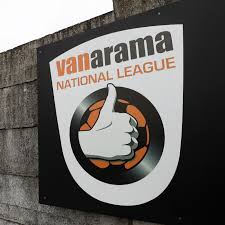By Andrew Warshaw
January 19 – The top two tiers of English non-league football, known as the National League and National League north and south, are in danger of being called off because of funding – or lack of it.
The three divisions kicked off the delayed start to the season in October after securing a £10 million grant from the government for the opening three months of the current campaign.
But that has now expired and the 67 clubs involved have now been told that future payments amounting to £11 million will be loans rather than grants.
The National League is the only part of the footballing pyramid in England below the four professional divisions to have been allowed to carry on playing amid the latest national Covid-19 lockdown and the absence of fans.
Reports say the clubs involved will be addressed on Wednesday to plot a way forward amid suggestions they may vote that the season cannot continue without extra financial help.
While there is understandable sympathy with such a predicament, it doesn’t tell the whole story.
National League clubs are the only ones below League Two level to be considered “elite” and have therefore enjoyed the privilege of playing throughout the pandemic – in stark contrast to hundreds of other smaller non-leagues sides who have had their stadiums closed and have not been able to play for months on end.
Gate receipts make up the vast majority of revenue for part-time clubs but the National League has enjoyed broadcasting revenue that lesser clubs – envious of those at the top of the tree, decimated by having no government support whatsoever and in dire financial straits – can only dream about.
Indeed by this weekend, all non-league football from steps 3 to 6 are due to vote whether to void the season completely – for the second time in a row.
The overwhelming feedback from hard-up smaller teams is that resuming competitive football would not be financially viable unless paying fans are re-admitted and clubs are able to derive secondary income – let alone the number of weeks required to bring players’ fitness levels back up to scratch and devise a system of rescheduling scores of already postponed games.
If these clubs end up being joined in a null and void scenario by those at the top of the non-league hierarchy, there is a justifiable argument that this would be the fairest outcome across all levels of the part-time game.
Contact the writer of this story at moc.l1713547914labto1713547914ofdlr1713547914owedi1713547914sni@w1713547914ahsra1713547914w.wer1713547914dna1713547914

